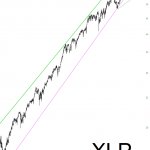Asian indices are lower today as Japanese and Hong Kong shares fall. The Nikkei 225 is off 0.14% while the Hang Seng is down 0.07%. The Shanghai Composite is trading down by 0.2%. Overnight, the US markets closed mixed.
Back home, India share markets have opened the day marginally higher. The BSE Sensex is trading higher by 33 points while the NSE Nifty is trading higher by 9 points. The BSE Mid Cap index and BSE Small Cap index opened the day up by 0.4% & 0.3% respectively.
Barring FMCG stocks and bank stocks, all sectoral indices have opened the day in green with realty stocks and consumer durables stocks witnessing buying interest. The rupee is trading at 64.45 to the US$.
As per the data published by the Reserve Bank of India (RBI), India’s July-September current account deficit more than doubled from a year earlier after imports accelerated while crude prices surged.
The July-September current account deficit (CAD) widened to 1.2% of gross domestic product, or US$7.2 billion. That was wider than the 0.6% or US$3.4 billion in the same period a year ago.
Meanwhile, the trade deficit widened to US$32.8 billion in the previous quarter from US$25.6 billion a year ago.
Reportedly, the widening of the CAD on a year-on-year basis was primarily on account of a higher trade deficit brought about by a larger increase in merchandise imports relative to exports.
Going ahead the current account deficit is expected to widen and end the fiscal year ending in March at 1.7-2.0% of GDP, as oil and other global commodity prices continue to gain, while exports remain stable.
Despite a wider current account deficit, India’s balance of payments posted a surplus of US$9.5 billion in July-September compared with US$8.5 billion a year ago, helped by a stronger capital account.
The capital account surplus, which includes foreign direct investment and portfolio inflows, was at US$6.9 billion in the September quarter compared with US$4.3 billion a year ago.

















Leave A Comment